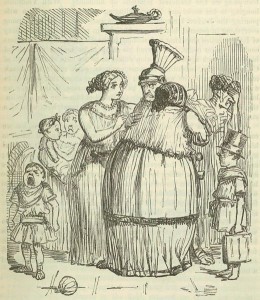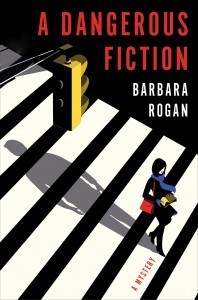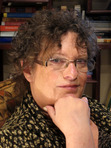Breaking Up Is Hard To Do: On Series and Stand-Alone Novels
Writing novels is like having a series of intense love affairs that never end in marriage; therefore, I am well acquainted with breakups. I don’t mean characters breaking up with each other, but rather characters leaving me at the end of each book. No matter how often it happens, it’s always a jolt. For a year or two, we’ve been inseparable, me living through them, them drawing their very breath from me. As the story advances, the relationship intensifies to the point that I feel as if I’m living two lives, my own and my protagonist’s. Transitions from one life to the other are neither effortless nor seamless. I find it easier to enter into the story then to leave it. The characters’ problems seep into my dreams, and even in my waking life I sometimes see through their eyes.
And then suddenly it’s over: the story is finished. It will be a long goodbye: there are edits to come, months to go before our final parting. But once that last page is written, it’s the beginning of the end.

Sometimes partings come before the end of the book. Characters die. When they do, I go through a period of mourning that mimics the real thing. I don’t mind saying that I have wept for fictional characters. It comes with the territory. As Robert Frost said, “No tears in the writer, no tears in the reader.”
But when the book ends, I lose them all. The comfort is that they do not die but go out into the world, rather like adult children leaving home to fend and speak for themselves. It’s painful, but one grows used to it; and their departure leaves room for other characters to grow.
What happens, then, when the adult children come home?
I’ve never written a sequel. All my books have been stand-alones, with their own the cast of characters and settings. But my latest novel (A Dangerous Fiction, coming out with Viking in July 2013) is a departure: the pilot book of a series. That wasn’t my intention when I started A Dangerous Fiction. I thought I was writing another stand-alone novel, this one a mystery about a New York literary agent named Jo Donovan who is stalked by a frustrated writer. I grew very fond of Jo. She’s probably the most complicated, flawed protagonist I’ve ever created; but she has qualities I particularly admire, including courage, loyalty, and resilience. The idea of a series came originally from my editor at Viking; but my reaction to her suggestion – a virtual tsunami of plot ideas for Jo – was a sure sign that the idea had been brewing just under the surface of my mind.
 I was happy at the prospect of continuing with Jo, and quite sure her story didn’t end where the book did. But I was nervous, too. Could I, I wondered, resurrect Jo and her friends after I’d set them free? I don’t jump from one book to the next. I wish I could, but my brain needs recharging when I finish a novel. Would Jo still be there when I came back to her?
I was happy at the prospect of continuing with Jo, and quite sure her story didn’t end where the book did. But I was nervous, too. Could I, I wondered, resurrect Jo and her friends after I’d set them free? I don’t jump from one book to the next. I wish I could, but my brain needs recharging when I finish a novel. Would Jo still be there when I came back to her?
Now that I’m immersed in the new book, I’m happy to report that she did. She’s a bit older and a bit wiser, but not too much wiser. The reason she came back, I think, is that I left her with so many unresolved issues, jagged spurs to the imagination.
It strikes me that this is true of all the great series characters, who change and grow from book to book: characters who respond to the experiences they undergo. They’ve all got something eating them that all the therapy in the world won’t resolve. Walter Mosley’s Easy Rollins comes out of the segregated South with a chip on his shoulder that never goes away; neither does his attraction to dangerous women. Mma Ramotswe, Alexander McCall Smith’s avatar of good sense and clear vision, is haunted by a violent marriage in her past. Thomas Harris’s Clarice Starling hears lambs crying in the night and always will. These characters evolve in response to the events of their stories, but they never shed their essential, unresolved selves.
Does this make sense? How do you feel, as readers and/or writers, about series characters? What draws you to them, and what turns you off?
A Dangerous Fiction is available for preorder in all the major online bookstores. Right now there’s a 30% discount on the hardcover edition at Amazon and B&N. Go on – you know you want to read it.



